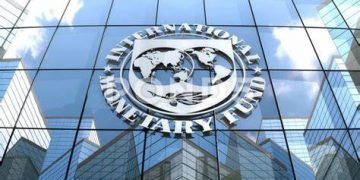By Emmanuel Nduka
The International Monetary Fund (IMF) has warned the Nigerian Government that its spending on subsidies could hit a record N6trillion by the end of this year.
With Nigeria’s fuel subsidy payout averaging N500 billion monthly, the IMF also revealed that a macro-fiscal stress test it conducted on the country showed that interest payments on debts in the country could amount to Nigeria using 100 per cent of its revenue to service debts by 2026 if not closely monitored.
The warning was cued in IMF’s Resident Representative for Nigeria, Mr. Ari Aisen while presenting the latest Sub-Saharan Africa Regional Economic Outlook, in Abuja.
He also revealed that Nigeria received a total of $6.8 billion facilities from the IMF following the outbreak of the COVID-19 pandemic in 2020, and another $3.4 billion in Special Drawing Rights (SDR) and as well as a loan in the same amount.
Aisen expressed worry that many African countries, including Nigeria risk sliding into critical debt servicing problem unless urgent actions were explored to significantly raise revenue, noting that over 80 per cent of the Nigerian Government’s revenue was committed to debt service.
“It is a reflection of low revenue. It is an existential issue for Nigeria. It is essential for macro-economic stability. It is important for the provision for social service,” he said.
On Nigeria’s fiscal challenges, he regretted that the country as an oil exporter, was not only unable to take advantage of the current global high oil prices to build reserves, but also confronted by low earnings due to the subsidy on petroleum products.
He however raised optimism that the Dangote Refinery would reduce fuel importation when completed, thereby cutting down the subsidy burden.
The IMF chief said Africa needed $425 billion to recover from the COVID-19 pandemic. This was in addition to between $30 and $50 billion per year for climate adaptation and $6-10 billion annually for commodity import.
“I think the biggest critical aspect for Nigeria is that we have done a macro-fiscal stress test, and what you observe is the interest payments as a share of revenue and as you see us in terms of the baseline from the federal government of Nigeria, the revenue almost 100 per cent is projected by 2026 to be taken by debt service.
“So, the fiscal space or the amount of revenues that will be needed and this without considering any shock is that most of the revenues of the federal government are now in fact 89 per cent and it will continue if nothing is done to be taken by debt service.
“It is a reflection of the low revenue of the country. The country needs to mobilise more revenue to be able to have macroeconomic stability. It has become an existential issue for Nigeria.
“The war in Europe is hunger in Sub-Saharan Africa and Africa. So, I think we should pay very close attention to this issue,” he added.
The IMF thus advised Nigeria to in the short-term to prioritise its debt, inflation, growth and foreign exchange management.
Director-General of the Budget Office, Mr. Ben Akabueze, in his contribution, disagreed with Aisen on Nigeria’s debt service/revenue figures, put debt service/revenue at 76 per cent.
“There is no doubt that the debt servicing –revenue is way beyond what we want it to be,” he noted.
Akabueze stressed that additional revenue was the only choice before the government, assuring that the nation would not default in its debt service obligations.
While expressing regret that vested interests had made the removal of petrol subsidy very difficult over the years, he added that the Nigerian Government had taken steps to significantly increase revenue.
“When you try to remove subsidy or raise tariffs, you get summons, you see resolutions get passed, asking you not to,” he said




































